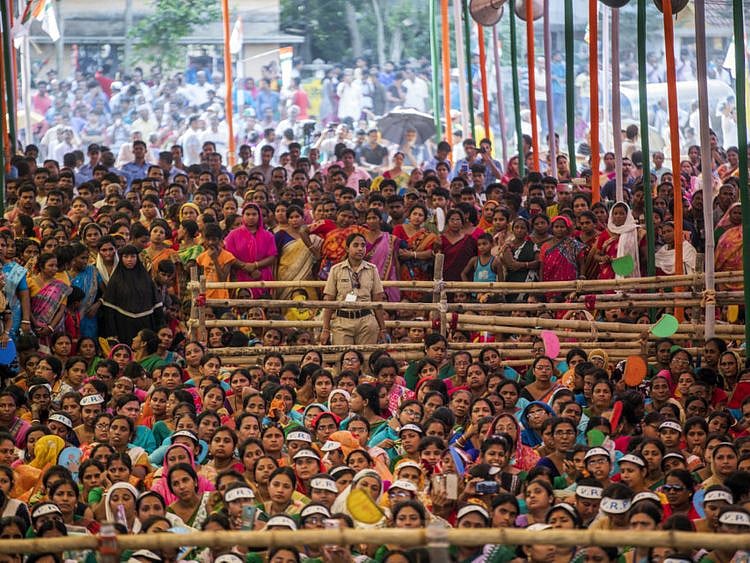Election campaign in India hits rock bottom
There is little focus on real issues confronting the India. Instead it is a free for all.

Is the common man in the world’s largest democracy, four weeks into the national elections, any clearer about what the various political parties are going to do to improve his lot?
The barrage of mudslinging in the name of campaigning that is being unleashed on the Indian voter is unprecedented this year and with just two more phases remaining for the marathon elections to wrap up, his plight remains a study in victimisation.
It would be a safe bet to say that the voters remain little enlightened about how the election manifestos of various political parties will be implemented but are only too aware of the volume of opponent bashing that has become the norm for the 2019 elections.
A pointer to this reality is the analyses of campaign speeches, not for their emphasis on the issues confronting the nation, but for the repetitive catch words born of personal antagonisms. For example, Prime Minister Narendra Modi’s speeches are filleted for how many times he mentioned the word ‘poor’ versus the word ‘Modi’? Or how many times he uttered the word ‘farmer’ vis-a-vis ‘poverty’.
On the other side of the divide, Rahul Gandhi’s speeches are picked over for his mention of the words ‘Modi’ and ‘Chowkidar’ (the new synonyms in India’s political lexicon). Among the regional parties, the issue fares no better.
But can anyone really blame the bean counters? In fact, these algorithms serve a purpose beyond the obvious: they highlight the paucity of intent by the elected legislators to do what they were elected for in the first place: solve the country’s problems.
India’s 2019 national elections, heralded by experts as ‘history altering’ and ‘narrative shifting’, seem to have gone off the rails. The weeks of deafening rhetoric, whether by the Congress, the BJP or regional parties, is distinguished more by its ‘attack and deflect mode’, than an exposition of what each party will bring to the table over the next five years. Of course, each party’s election manifestos are out, but the continuing disregard for serious policy adumbration and strategies has reduced the manifestos to window dressing.
So, is the Indian voter left to his own devices to choose his candidate? And more importantly, is this what a democracy should ask of its people?
As the elections grind on to their end on May 19, the answers to both questions, unfortunately, seem elusive.
Sign up for the Daily Briefing
Get the latest news and updates straight to your inbox
Network Links
GN StoreDownload our app
© Al Nisr Publishing LLC 2026. All rights reserved.